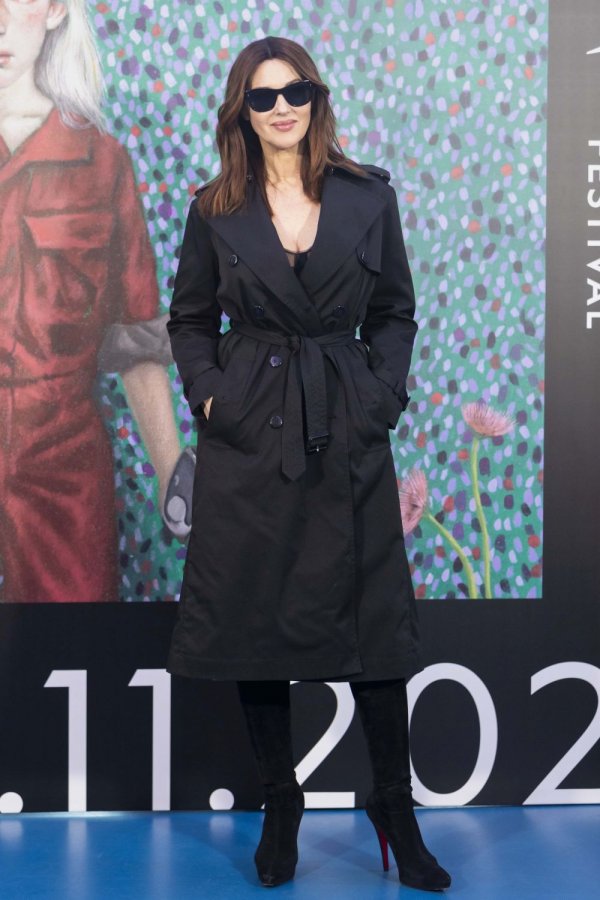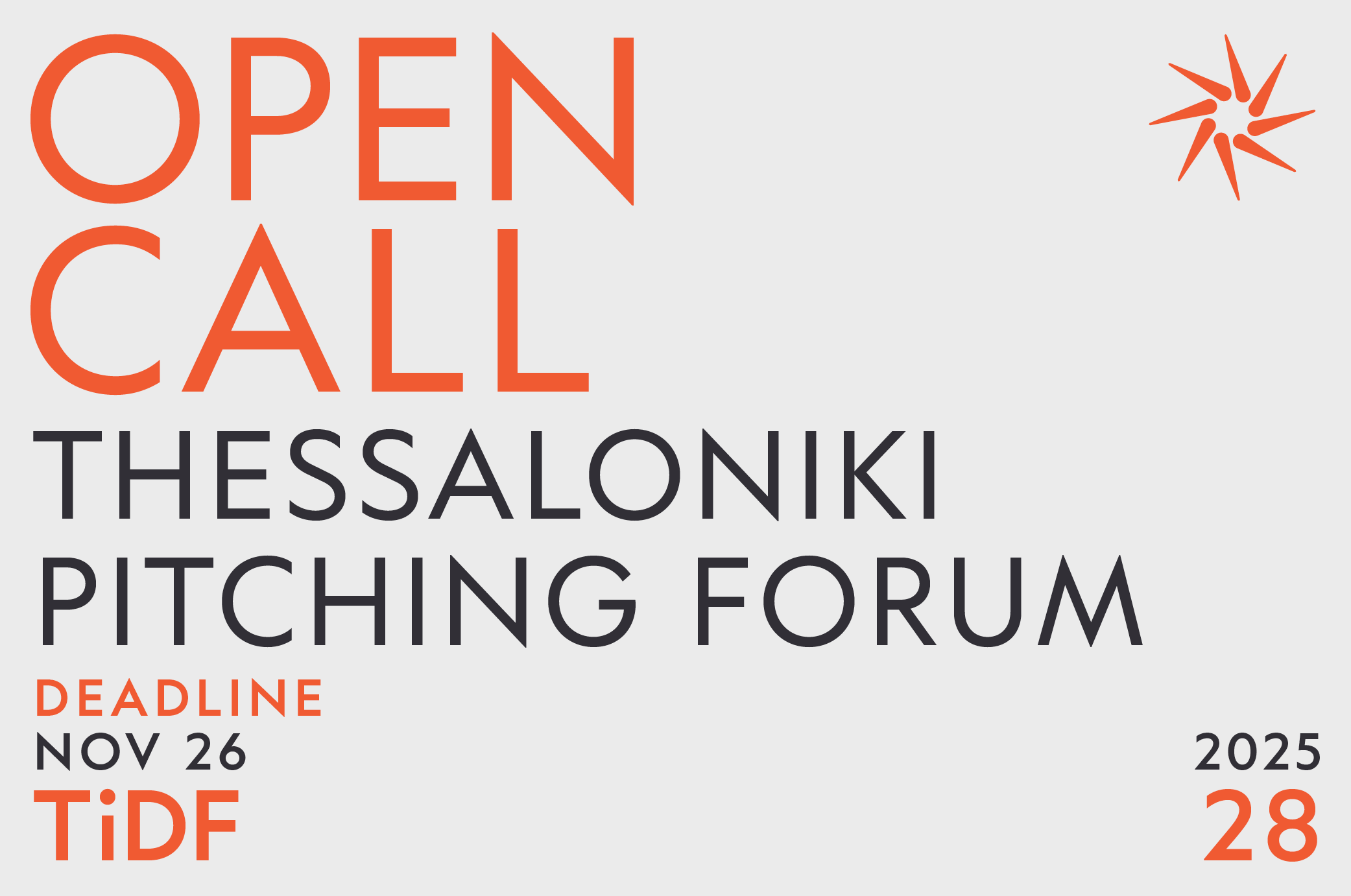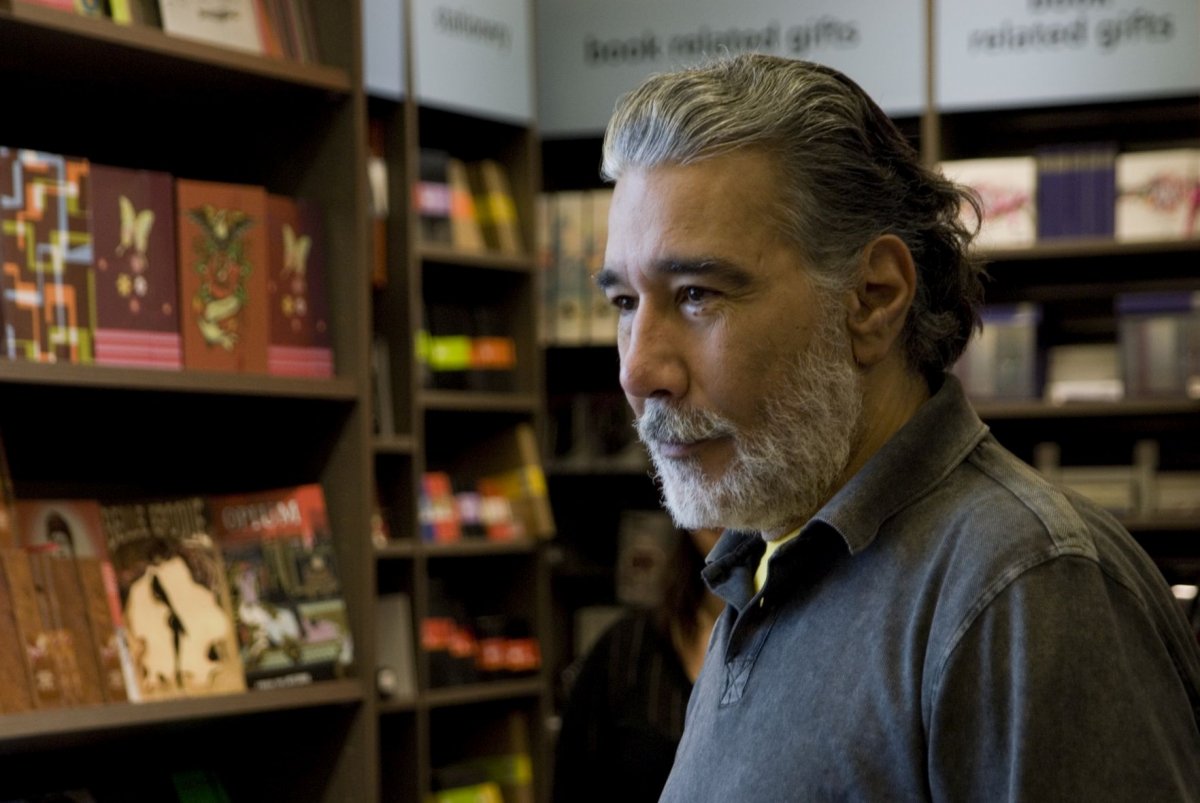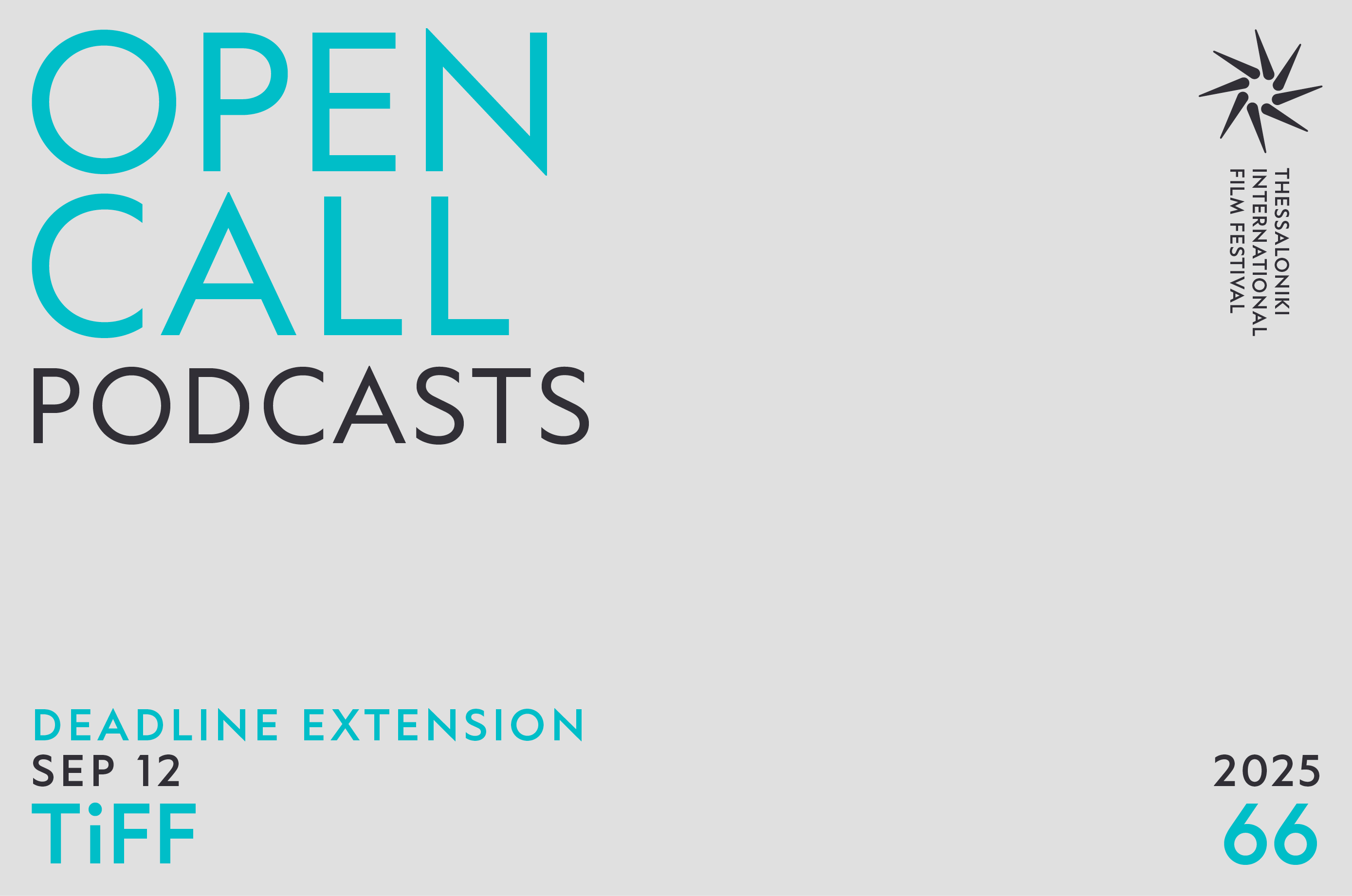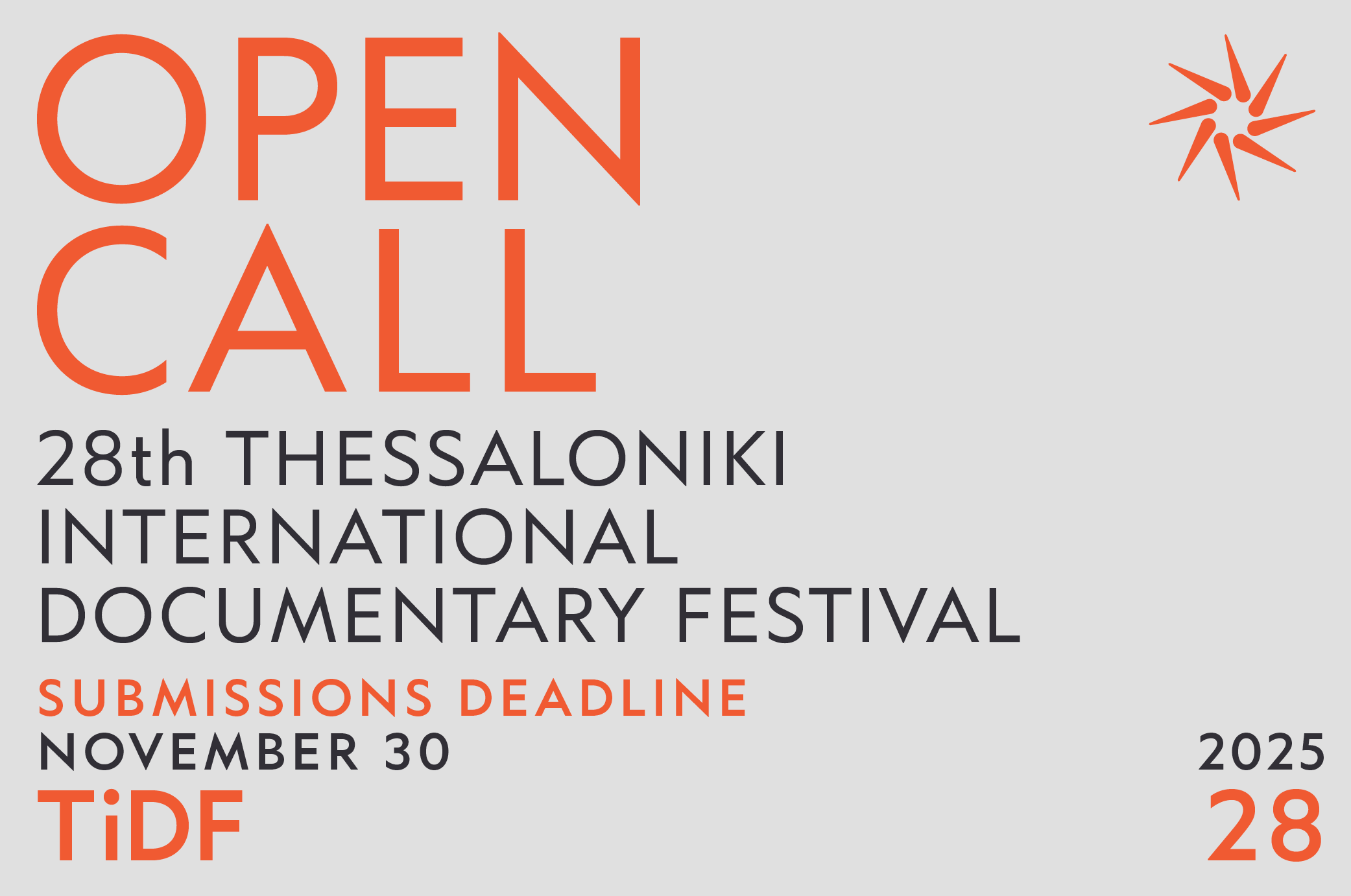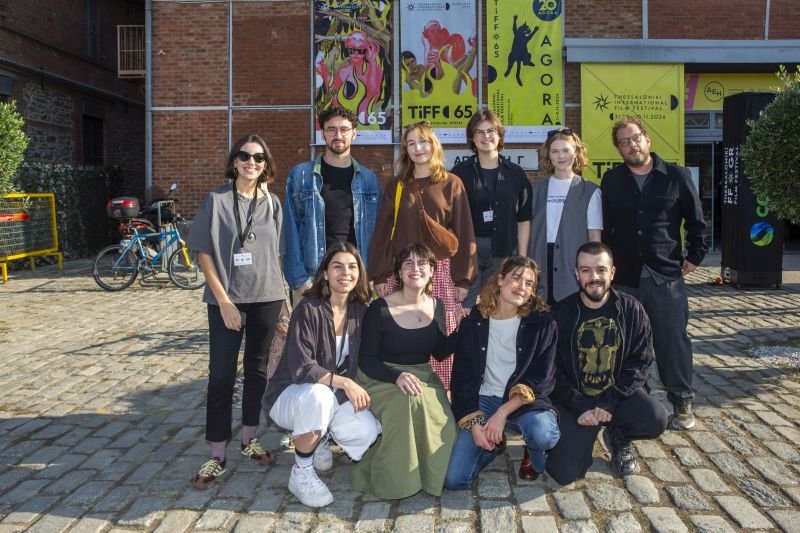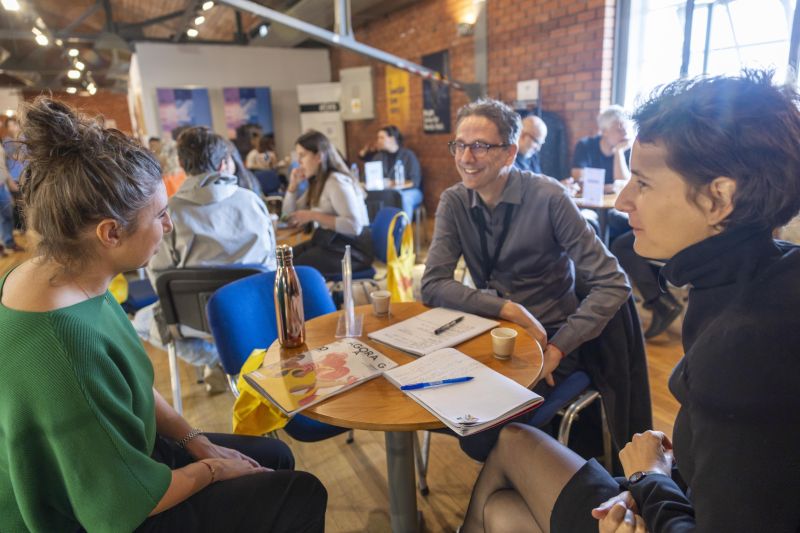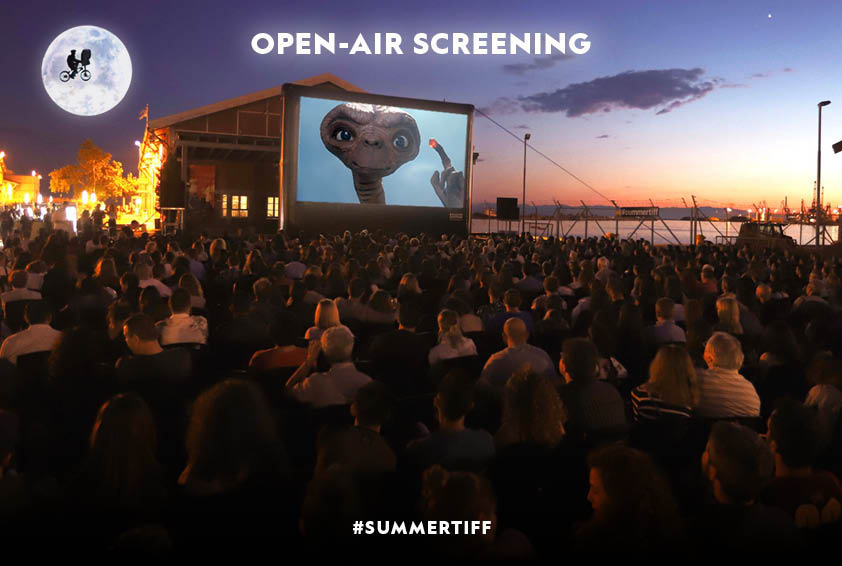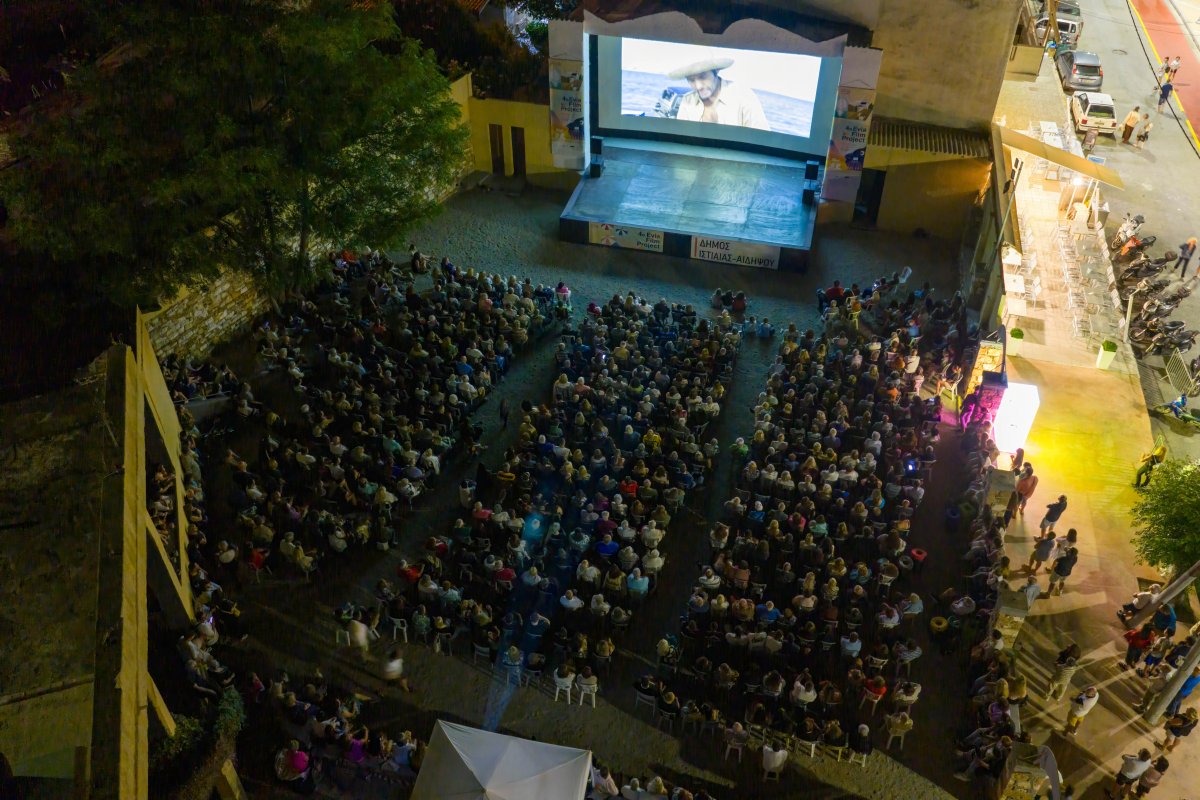The dazzling Monica Bellucci, official guest of the 64th Thessaloniki International Film Festival, held a press conference on Thursday, November 9th, at the John Cassavetes theater, a few hours prior to the special screening of Malèna at Olympion theater, where she will receive the honorary Golden Alexander Award. After the press conference, Monica Bellucci visited the main exhibition of the Festival, titled "FANT SM S", as well as the original exhibition-art installation "Takis Kanellopoulos - Dreaming of an Excursion", stating she was impressed by both the content and the curatorship of the two exhibitions. Before enjoying the two exhibitions, Monica Bellucci spoke to members of the press on the portrayal of Maria Callas, her remarkable career, the place of women in the contemporary cinematic landscape, and her deep love for cinema and the art of acting.
The artistic director of the Festival, Orestis Andreadakis, welcomed the brilliant Italian actress, saying: "Good morning to all, we would like to welcome you to Monica Bellucci's press conference. The screening of the film Maria Callas: Letters and Memoirs, co-directed by Yannis Dimolitsas, took place last night, in presence of the film's director. Today, at the screening of the film Malèna, the honorary Golden Alexander of the Festival will be bestowed to Monica Bellucci for her entire contribution to cinema. I will now give the floor to my dear colleague and Head of Programming, Yorgos Krassakopoulos."
"It is an absolute honor and pleasure to have you here with us at the Thessaloniki Film Festival. Yesterday, at the screening of the film, you mentioned that you hold Greece dearly in your heart. As you discovered yesterday and today, the feelings are mutual. I would like to ask how your experience with a movie that was partly filmed in Greece was, and what were your impressions of collaborating with the Greek co-director of the film, Yannis Dimolitsas," was the initial question posed by Yorgos Krassakopoulos. "Overall speaking, it was an unforgettable experience, and working with Yannis Dimolitsas was amazing in every aspect. It means a lot to me being here, you know how much I love Greece; I keep visiting your country all the time. I feel grateful for the fact that I have portrayed Maria Callas, such an emblematic figure of the arts and culture. But the most significant factor for me is that through this experience I have discovered the dual nature of Callas. On the one hand, a true diva, with divine charisma and talent. On the other hand, a woman with genuine feelings, spontaneity and a pure heart. But the most significant factor for me is that through this experience I have discovered the dual nature of Callas. On the one hand, a true diva, with divine charisma and talent. On the other hand, a woman with genuine feelings, spontaneity and a pure heart. Both the play and the film explore Maria more than Callas, shedding light on the hopes and dreams of a young woman, but also on the maturity and difficulties she experienced as an accomplished star struggling to find a balance between her success and her private life," she initially revealed.
"After, let’s not forget the actresses and artists who have embodied Callas, from Fanny Ardant to Marina Abramović, while in the near future we will also see Angelina Jolie in a similar role. All these point to the conclusion that the personality and radiance of Maria Callas continues to be a source of inspiration and fascination. The performance at the Odeon of Herodes Atticus was one of the most powerful moments in my entire career, as was the three-year tour of the show around the world. Maria Callas was a real landmark of Greek history, so it was very important for me to feel accepted by Greek audiences in this role," she added.
Right afterwards, Yorgos Krassakopoulos referred to the similarities that can be drawn between Maria Callas and Monica Bellucci, including the handling of fame and public adoration, and asked how she perceived her first experience on the theatre stage. "To be honest, I was scared at first, as in the theatre the relationship with the audience is different, unfiltered, more direct, more honest and stronger. I suppose the director Tom Volf chose me partly because of my Mediterranean appearance and origin. Another common element I can pinpoint is that Maria Callas was born in New York, then came to Greece, became a star in Italy and then moved to Paris. No matter where she lived, no matter how much she was adored by the public, she never ceased to feel like a foreigner or even a guest in a place, and that's something I can empathize with."
Then, when asked by Yorgos Krassakopoulos about how she manages the constant attention she receives from both the media and the public, Monica Bellucci replied on the subject, "The truth is that I don't feel like I'm always in the spotlight, except when I'm in the process of promoting a new film or a new project. The rest of the time, to be honest, I prefer to stay in the shadows. In this area, I was able to learn a lot from Callas. She was not just a legendary soprano, but also a courageous woman who found the courage to live her life according to her desires, finding it in herself to get a divorce at a time when such an action was forbidden in every way in Italy. Callas followed her heart, having initially sacrificed her youth on the altar of her art and talent. At a later age, when she met Onassis, she rediscovered her femininity, which she sought to live to its full potential," she mentioned, before referring to the parallels between Maria Callas and the heroine she embodies in Malèna. "The common thread connecting these two films, even though they are about twenty years apart, is that they are centered around two women dealing with a male-dominated world. Generally speaking, I feel lucky to have started my career in cinema at the age of 25 and not before. In Malèna, for example, I play a woman at 27, whereas at the time I was ten years older. Ultimately that's the beauty of cinema. At that age, I knew how to protect myself, and I feel the same is true for my daughter, also working as both an actress and a model.”
Soon after, in response to a question as to whether she was concerned by the unwritten law of the film industry according to which older actors find it difficult to land interesting roles, she stated that it is futile to fight the passage of time. "I honestly don't care about my age, it's futile to fight against time, you are absolutely bound to lose. We should count ourselves lucky to grow older, especially if we are surrounded by people who love us and we love them. As cliché as it sounds, the things that make me feel alive and not reflect on the passing of time are my family, my friends and my passion for my work. Personally speaking, I feel blessed to have the opportunity to meet interesting new people and creatives through my work. At the same time, as you get older, you realize that what matters is real life. I think what we went through during the pandemic forced many of us to rethink our attitudes and accept that human relationships are the most important thing we possess."
Following, Yorgos Krassakopoulos touched upon the different aspects of Monica Bellucci's career, and how she copes with the changes in the contemporary cinematic landscape, from the rise of streaming to the birth of the MeToo movement. "I've worked with both young and emerging directors as well as seasoned filmmakers. I've been involved in both blockbuster productions and low-budget films. In reality, my primary concern is for a project to convey passion and be engaging, sometimes it's actually very gratifying to realize that your presence might help a young filmmaker promote their project. For example, on the night of the performance at the enchanting venue of Odeon of Herodes Atticus, under the moonlight and accompanied by the amazing orchestra conducted by George Petrou, I just wanted to be able to deliver, because the standards were very high. I'm not concerned by the size of a production, but the opportunity to learn new things both as an actor and as a person," she initially responded, before delving into how she experiences and interprets the major changes in the landscape of the film industry.
"There was indeed a time when we all feared that the end of cinema was near, but fortunately we were proved wrong. Nevertheless, I have to admit that watching some remarkable films on Netflix, such as Andrew Dominik's Blonde or Romain Gavras' new film, I found it a pity that audiences would not get to watch them on the big screen, as the darkroom constitutes a unique and unrepeatable experience. One change I myself experienced in my career is that previously, in the 1940s and 50s, even in the 60s, Italian cinema used to represent a passport to an international career. Many famous Italian actresses, such as Silvana Mangano, Gina Lollobrigida, Sophia Loren, Anna Magnani, Monica Vitti, Giulietta Masina, gained international fame through Italian cinema. Now, of course, the circumstances are completely different and an international career is a much more complex and complicated process. However, I have been lucky enough to work with many directors from many different countries, drawing on elements and knowledge from many different cultures. As for the modern era, I dare say I have adapted, having been involved in TV productions such as Mozart in the Jungle and Call My Agent." At that point, Yorgos Krassakopoulos commented on her role in Call My Agent, in which she plays a dramatic version of herself, as well as her delightful guest appearance in David Lynch's Twin Peaks: The Return, noting that it's a pleasure to see an actress of such a high calibre being rid of all seriousness. "As you get older, you step back from any artificial image of yourself, you learn to separate reality from fantasy. When I wake up in the morning, I don't wear heels or make-up. I'm just an ordinary person working in the film industry," Monica Bellucci remarked.
Next, when asked by the audience how she approaches the different roles she is required to perform, Monica Bellucci was illuminating. "Every actor has their own approach, their own way and their own method of preparation. The technical aspect of preparation naturally has a major role to play, the 'physical' preparation as to how a character will stand, speak, look. The truly exciting part though, at least from my perspective, is that moment of uncertainty and improvisation, just before you start to portray the character. When you're called upon to make decisions spontaneously and you suddenly realize why and how you were originally drawn to that particular role." Monica Bellucci also discussed the human aspect of Maria Callas, an aspect with which she particularly related to. "Her story resonated with me very much because it is not an exaggeration to say she was a woman with a broken heart, a woman broken by love. I glimpsed the true image behind the star, I felt that I met a soul mate, seeking love and connection. She had referred many times in interviews to her unhealed wounds, ranging from Onassis, and the fact that she never had a family, to her strained relationships with her sister and mother. In the film you watched yesterday, our goal was to portray the loneliness that plagued her personal life, so we filmed scenes in her vacant apartment in Paris in order to convey her sense of abandonment. Even though the star was adored by the public, she felt deprived of love in her personal life. This moved me very deeply."
Monica Bellucci, while addressing the audience's questions, reflected on her collaborations with female directors, the place of women in the contemporary cinematic landscape, and the likelihood of her stepping behind the camera. "Isabelle Huppert once said that every female actress hides a princess inside her, which emerges with every compelling role. So at times, I feel exactly like that, as if the princess is bursting from within. I've worked with great directors, oftentimes I feel like I can relate to a woman on set almost automatically, just through a look. In one of my recent projects, a dark comedy, I worked with Marjane Satrapi, and everything flowed perfectly. This is a director who, while knowing exactly what she wants to achieve, allows you freedom of movement and the ability to develop the character at your own pace and in your own way. Out of respect for my work, I wouldn't dare making the transition into directing. I enjoy working as an actor and I still have a lot to learn. All in all, it's wonderful to see women in this day and age embodying roles portraying them as complete and vibrant personalities, having passions and sexuality, rather than as characters entrenched in conventional roles. In the past, even after the age of forty, it was difficult finding intriguing roles. Nowadays, in France where I live, it is noticeable that actresses such as Nathalie Baye, Charlotte Rampling, Isabelle Huppert and Fanny Ardant are still at the peak of cinema. I am optimistic for what the future holds because we as women have changed and our place in society has changed. We now garner more respect, we have gained greater self-respect, we speak and are heard more."
Concluding, Monica Bellucci stressed the necessity of adaptability to the changes dictated by the times, while clarifying that her passion for cinema and acting has remained unaltered. "Everything is changing around us, the way we perceive, produce and consume images. At some moments we have to accept that the world is changing and we may not be able to understand the changes that are taking place. However, my own passion for cinema has remained steadfast. Over the years I have of course gained more experience and developed my own approach and method, but deep down I feel that I haven't changed at all from the time when I was watching three films a day and passionately leafing through Helmut Newton's photography books. The driving force within me is still the same. As for the dark theater, it will never cease to possess a mystifying power. It is as Jean-Luc Godard said. When we are in the room, we watch the film with our head and eyes turned upwards. As if we are looking at something supreme and dreamlike, something that transcends us," she finished, receiving a round of applause from the audience.


